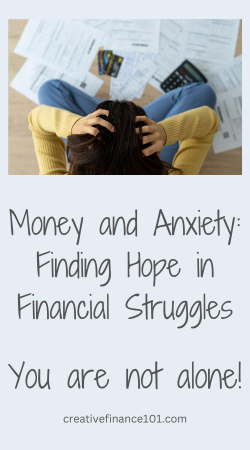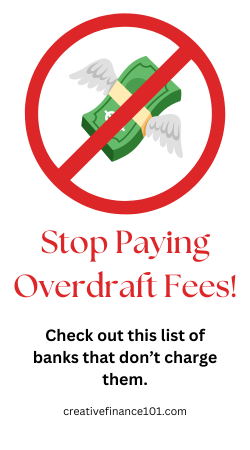Money is one of the leading causes of anxiety for millions of Americans. If you’re feeling stressed about your finances, you’re not alone. In fact, a recent survey revealed that 63% of Americans live paycheck to paycheck, and nearly half worry about unexpected expenses. This shared experience is a reminder that financial struggles are not unique to you—but the good news is, there is hope.

You’re Not Alone
Financial anxiety can feel isolating, but it’s important to understand that many people are navigating similar challenges. Rising costs of living, stagnant wages, and economic uncertainty have left countless families struggling to make ends meet. Recognizing that you’re not alone can provide a sense of relief and solidarity. You’re part of a larger community of people working to take control of their finances and create a more stable future.
Breaking Free from the Paycheck-to-Paycheck Cycle
Living paycheck to paycheck can feel like a never-ending treadmill, but it is possible to step off. While there’s no quick fix, small and consistent changes can lead to significant improvements over time. Start by creating a realistic budget that prioritizes your essential expenses and highlights areas where you can cut back. Tracking your spending is key to identifying where your money goes and ensuring it aligns with your goals.
Building an emergency fund, even if you start small, can also help break the cycle. Setting aside $10 or $20 a week may not seem like much, but it adds up over time and provides a safety net for unexpected expenses. Consider automating your savings to make the process easier and more consistent.
Strategies to Reduce Debt
Debt is one of the biggest contributors to financial anxiety, but it doesn’t have to define your future. Start by listing all your debts and their interest rates. Two popular methods to tackle debt are the snowball method, where you pay off the smallest debts first to build momentum, and the avalanche method, where you focus on debts with the highest interest rates to save money over time. Choose the approach that works best for your situation and stick with it.
If high-interest credit card debt is a concern, consider consolidating it with a personal loan or transferring it to a 0% APR credit card. These options can lower your interest payments and make your debt more manageable.
Small Changes for Big Impact
Improving your financial situation doesn’t always require drastic measures. Small lifestyle changes, like cooking at home instead of dining out or canceling unused subscriptions, can free up money to put toward savings or debt repayment. At the same time, consider finding ways to increase your income, such as freelancing, selling unused items, or pursuing a side hustle.
Finding Hope and Moving Forward
Financial anxiety doesn’t have to be permanent. By acknowledging your challenges and taking proactive steps, you can regain control over your finances. It’s a journey, and progress may be slow at times, but every step forward is a step closer to financial freedom.
Remember, you’re not alone in this journey. Millions of Americans are working to improve their financial situations, and many have succeeded by making both big and small changes. With determination, patience, and a clear plan, you can reduce your money-related stress and build a brighter, more stable future.



Leave a Reply